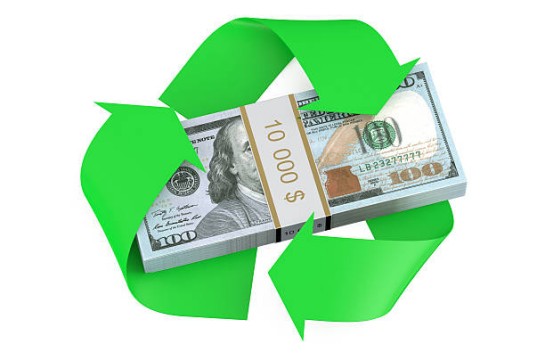Should I invest in companies where I shop? For example, does it make sense to buy stocks in the grocery store where I buy food? In the clothing stores where I buy outfits? Would making dividends off these offset a little of the cost from shopping there?
On the surface, this idea of recycling funds seems like it should work. You buy goods from a store, the company makes money, and you get a small percentage back through dividends paid to the stocks you owe in the company. The money circulates through the company and back to you!
It’s a nice idea, in theory, but in practise doesn’t work. One reason for this is you will not make enough money off dividends from the company’s stocks to offset the goods you buy in any meaningful way. Just as an example, let’s say you bought a share of Microsoft stock for around $250. Then you went out and purchased bunch of the company’s software for $100 (or $200 or $300). At the end of the year you’d get back 68 cents ($0.68) in dividends.
Now, if you spent $500 or $1,000 on Microsoft products, how much would you get back? $0.68. Companies large enough to be traded on a large stock exchange for more than pennies are massive, often making millions (or billions) of dollars per year. Your fuel, groceries, software, and gadget purchases are not going to make a difference in how much money the company’s dividends pay out each year. In other words, the amount of money you get out of a company’s stocks is not proportionate to the money you put into purchases from the company.
Another reason purchasing stocks in companies from which you buy goods doesn’t make good financial sense is: whether you’re buying goods from them or not is rarely an indicator of the health of a business. Just ask anyone who both owned a Blackberry phone and stocks in Blackberry (RIM) in 2008 how that turned out for them. Back then almost everyone I knew owned a Blackberry phone, but that didn’t prevent the stock from losing two-thirds of its value in just a few months. Blackberry’s stock price went from $138 in May to $40 in December. Companies like Indigo Books and Music (Chapters), famous for their books and toys, probably seemed like a good investment 25 years ago when the company was riding high at $35 per share and everyone still bought their books in local shops, but now the company is trading at about $2.
Think about how many businesses you’ve shopped at in your life which have closed. How many gas stations have been abandoned, how many restaurants have folded, and how many corner stores now stand empty? This is why being a customer of a business is not always a good indication you should also be an investor.
When you’re looking to invest in specific companies it’s probably best to take yourself out of the equation. Look at their business plan, their performance, their management, their revenue over recent years. Statistically, any one person’s shopping habits will not impact the company greatly.
In the long-term most people are probably better off investing in index funds, diversified funds which track the performance of the overall market. This is less risky than investing your money into any one company and will usually perform well on long timelines. The Canadian Couch Potato website has some good tips on how to invest in index funds in a “set and forget” approach to investing so you don’t need to worry about the performance of specific stocks.

Comments are closed, but trackbacks and pingbacks are open.